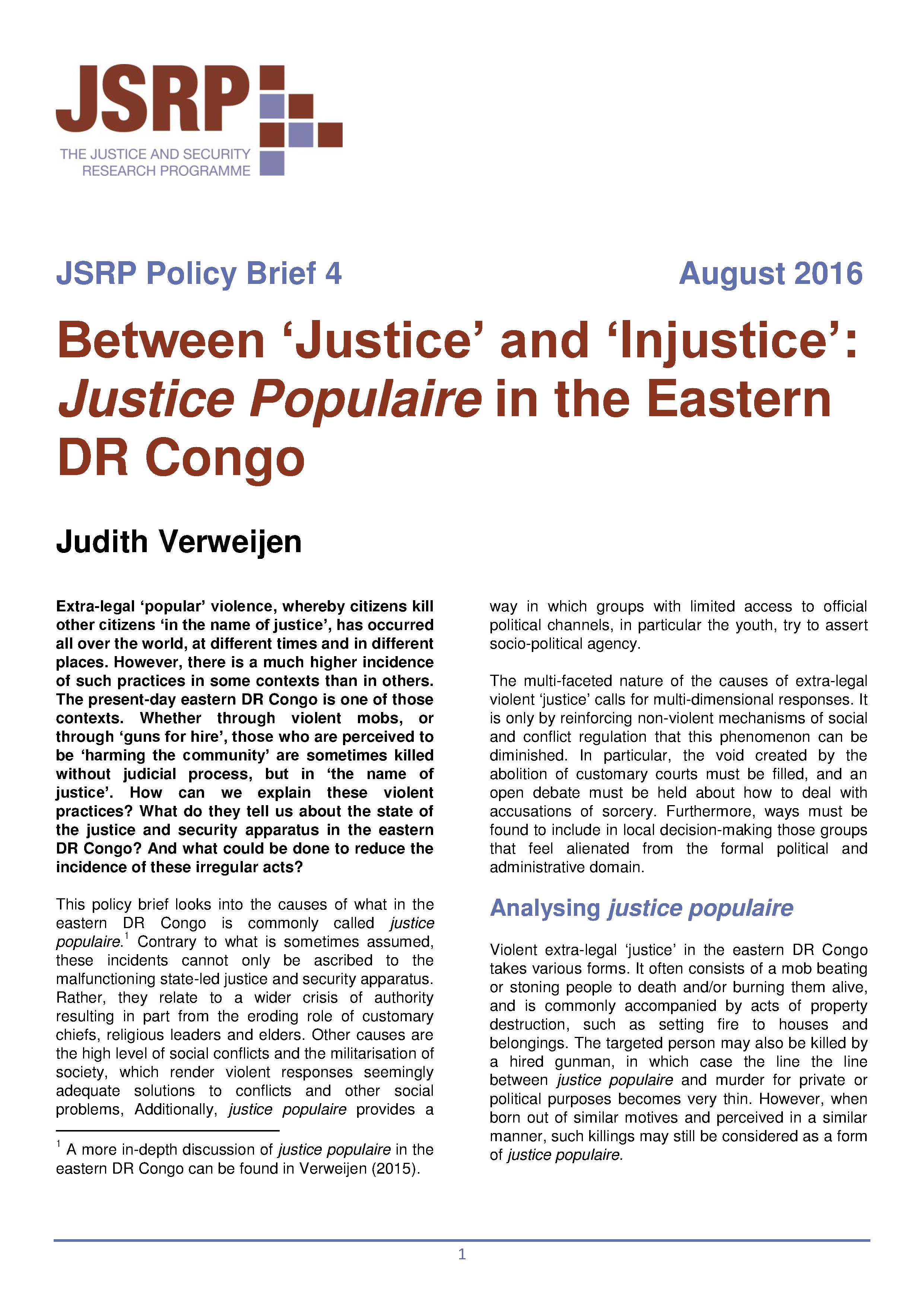Anna Macdonald is co-author with JSRP Research Director Tim Allen of ‘Post-Conflict Traditional Justice: a critical overview’.
In his brilliant essay about the historical relationship between the Bantu speaking Bunyoro-Kitara people and the Luo speaking Acholi, the Ugandan writer David Kaiza warns “if you look too much for patterns, even clouds will resemble maps and human faces”. His gripe is with conventional scholarly classifications which tend to present things such as identity, tradition and custom as absolute. In a new JSRP paper surveying the current literature and debates on ‘traditional justice’ as a component of post-conflict or transitional justice, we refrain from general statements about traditional justice because it is not clear that a good definition of what is being discussed is either attainable or desirable.
We argue that measures associated with social accountability vary widely within population groups as well as between them. Other adjectives such as customary, community-based, grass-roots, indigenous and local are all sometimes used interchangeably by external observers. To a large extent these have become catch-all designations to describe procedures in places where other kinds of justice provision cannot reach and also as an explanation for why more formal judicial mechanisms introduced into post-conflict settings seem to have such limited effects. In recent years, ‘traditional processes’ have been explicitly linked to the promotion of more relevant and grounded transitional justice, although the desire for a ‘holistic’ approach – one that strikes a balance between meaningful customary practices and universal principles – is essentially an aspiration whose applicability and efficacy has rarely been tested.
Although they may overlap, this paper focuses mainly on the kinds of mechanisms selected to be called ‘traditional justice’ by advocates and less so on the ‘everyday’ practices of social repair (that are the subject of some very interesting articles in the November 2012 International Journal of Transitional Justice). Aid agencies, human rights activists, and local power brokers are finding in traditional justice ways of furthering their diverse agendas. Yet, despite some grand claims, in reality we still know remarkably little about the role and impact of informal justice processes in post-conflict situations. As so often in discussions of justice, normative notions of what is inherently believed to be right, shape perceptions, rather than evidence about what has actually been occurring. One consequence of this is a tendency to generalise misleadingly about traditional justice as if it were some sort of cohesive and homogenised alternative to formal systems. In our paper we comment on all of the key controversies in the extant literature and conclude, perhaps unsurprisingly, with a plea for much more rigorous, nuanced and systematic research.





